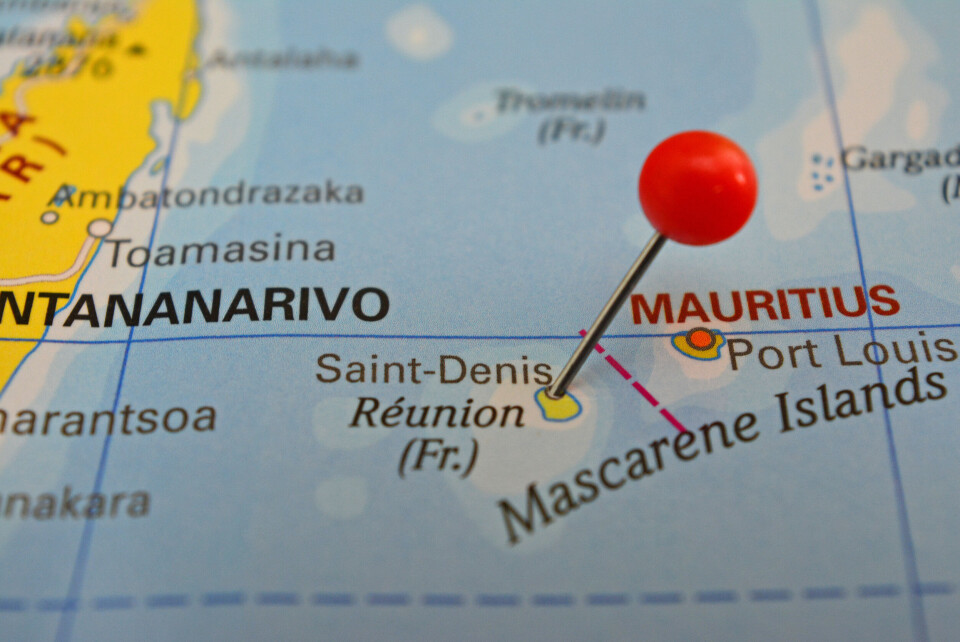-
Strikes and protests in January 2026 and how you may be affected
Doctors, rail staff, and farmers are all taking action
-
Good news as lower electricity bills confirmed in France
The change is not a ‘revolution’ but will give some purchasing power back, minister says
-
French ski resorts report excellent Christmas despite less snow than last year
Bookings are up and non-snow related activities are also on the rise
New statue at Paris Orly recalls Creuse ‘black page in French history’
The statue, which memorialises the tragic story of ‘the children of La Creuse’, has been called ‘the start of reparations by the French state’ to the victims of the forced exile from La Réunion

A commemorative statue has been inaugurated today (February 17) at Paris Orly airport, on the 60th anniversary of more than 2,000 children being exiled from La Réunion to France from 1962-1984.
The statue has been hailed as a form of “acknowledgement” and the start of “reparations”, by Valérie Andanson, spokesperson for the association la Fédération des enfants déracinés des DROM (‘The Overseas territory uprooted children’s federation’).
These children are often known as ‘les Enfants de la Creuse’ or ‘Réunionnais de la Creuse’, because they were taken from the French island of La Réunion to the department of Creuse to help repopulate it.
The Orly project has been ready for a year but it was not able to be inaugurated until now due to Covid. It has been created in tandem with a similar project in La Réunion, where a commemorative piece of art was installed in the Saint-Denis airport in 2013.
Ms Andanson told La Croix: “La Réunion is where it all started for us, and Orly is the place we passed through.”
She said: “This engraves in marble the memory of the Réunion Creuse children, and brings them into the history of France via the front door. For us, this is the beginning of reparations and another step on the path of our collective and individual resilience.
“France is admitting fault, which will allow us to move on. For us, it’s about protecting all child victims of abuse. We are an example of what not to do; our experience will remain a black page in the history of France.”
The association is also set to open an archive room in Guéret, Creuse, where archives and photos relating to the events will be held and showcased.
It is also working with a psychologist, Marion Feldman, to set up psychological support, financed by the Overseas Ministry, to help victims to access therapy and talking support where they can explore their history and difficult experience.
Story of forced exile
An Overseas Ministry investigation into the forced exile began in 2017.
Some of the children were orphans or given up by their families, and taken to live with host families in Creuse, to help repopulate the area in France, and cut the number of poor people in La Réunion.
Some say they never went back and grew up not knowing anything about their birth families, and others allege that their host families exploited them for cheap labour, disadvantaged, or abused them.
Many of those affected have reported being psychologically damaged by the events, and have reported suffering from racist, psychological, physical and sexual abuse. Some committed suicide.
Campaigners have long been hoping for state acknowledgement of the damage caused, and compensation to be paid.
In 2018, France issued an official, ministerial apology for what happened, and then-Overseas Minister Annick Girardin said that the “terrible history” needed to be acknowledged.
One survivor, Jean-Philippe Jean-Marie, has called for President Macron to issue an official apology, and in 2018 told Connexion: “So far all the work has been from the bottom up. I would like to see it come from the top down.
“I feel some financial contribution should also be considered. Some of us were literally slaves and we should be compensated.”
Mr Jean-Marie was taken from his family at age 11, and chosen by his Creuse adopters because of his “strong arms”. He was put to work in their boulangerie, and then looked after two disabled children after school.
He was not taught to read or write until he “escaped” to military service, and was only reunited with his mother at age 35, although he said that by then, their relationship was “broken”.
La Réunion is still a French overseas department and region, and is in the Indian Ocean.
Related articles
Investigation under way into ‘children of the Creuse’
State mistake ruined lives of 2,015 'stolen' children
























